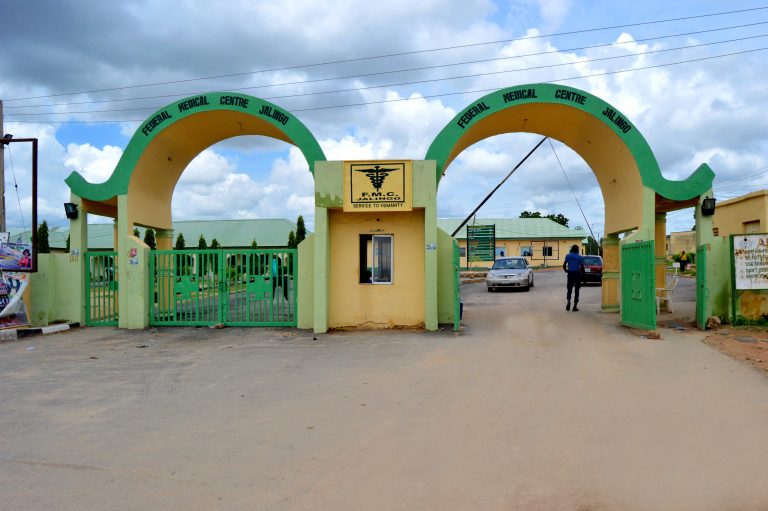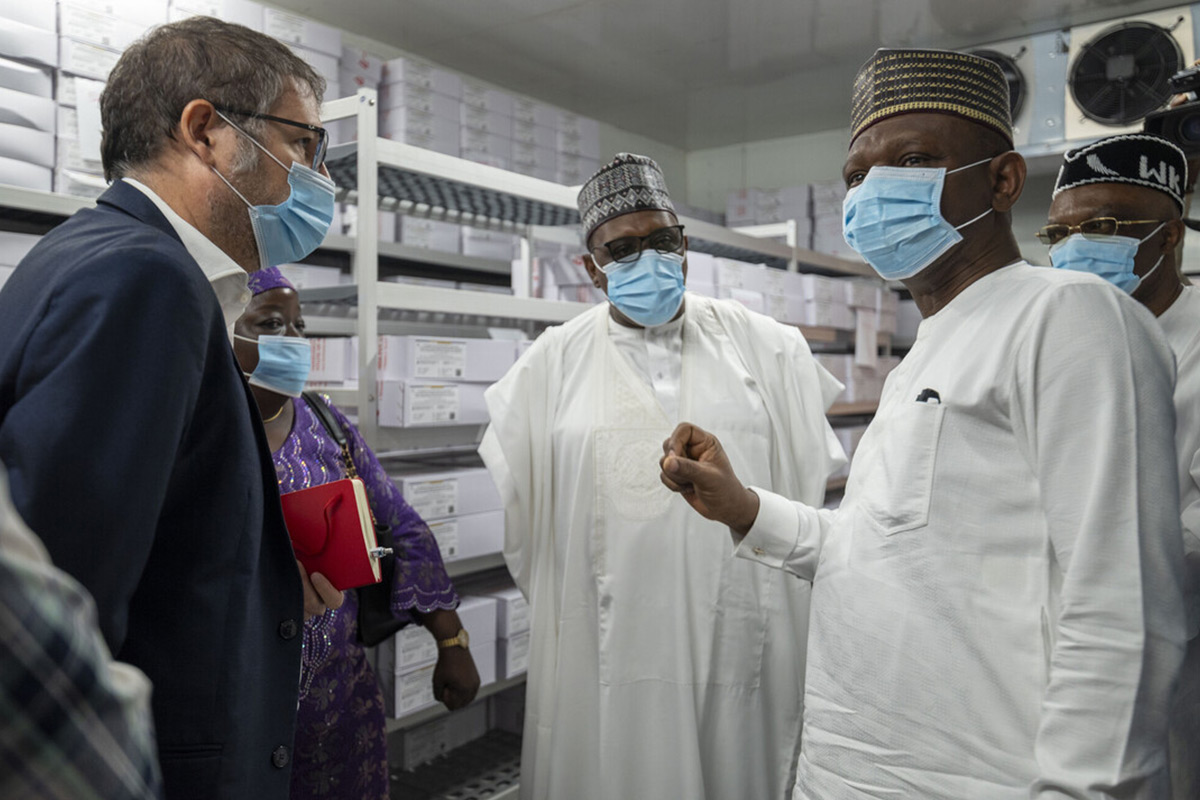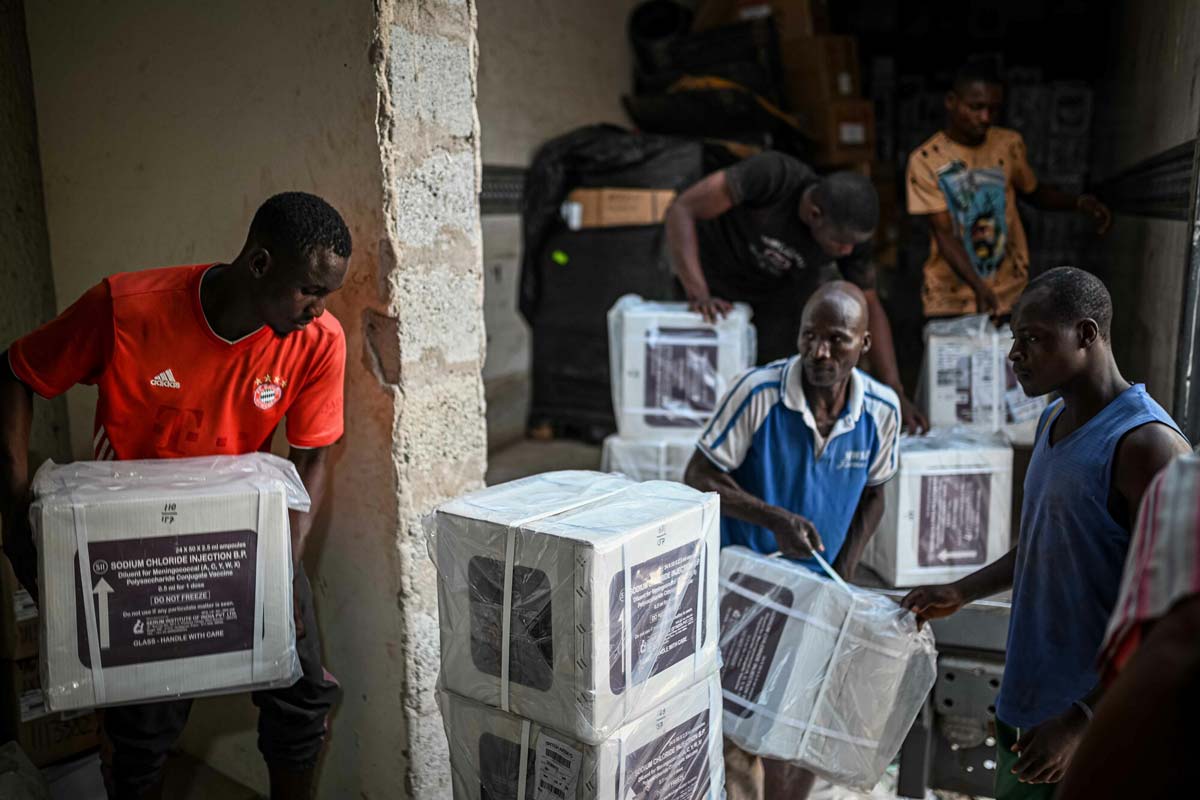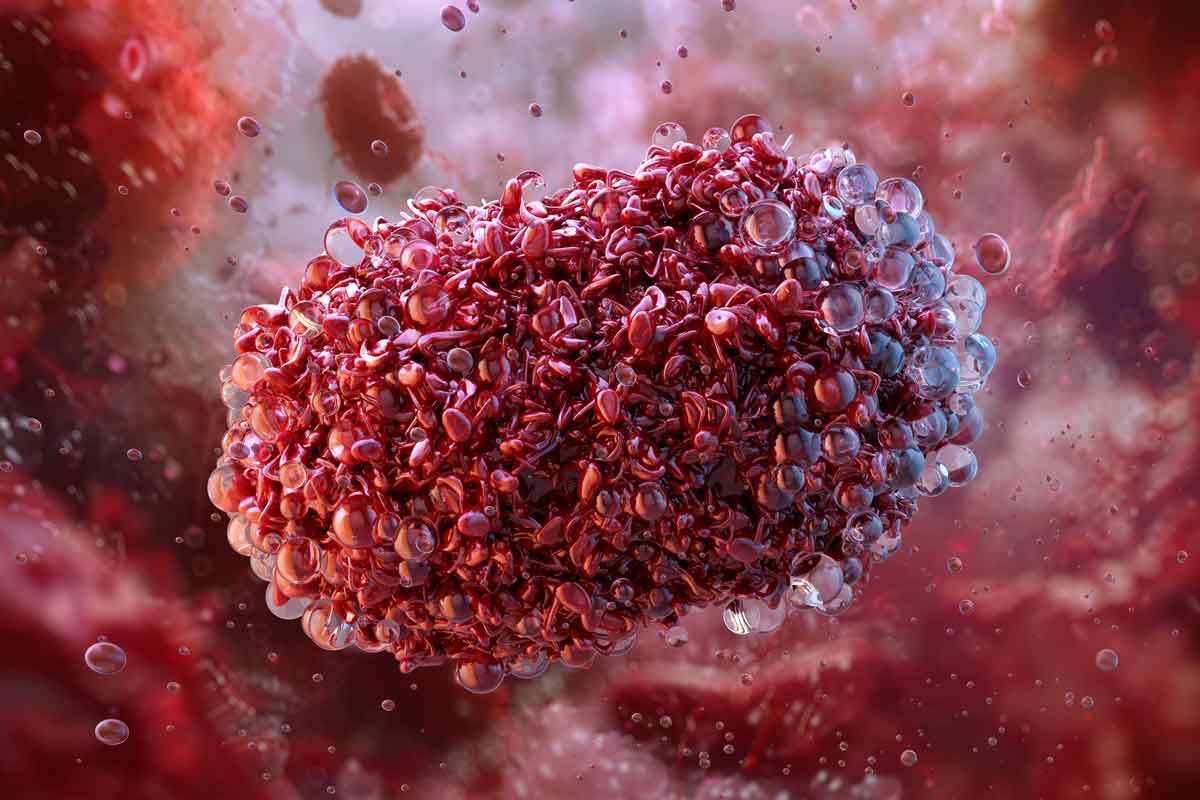Nigeria's Kwara state rolls out HPV vaccine to enthusiastic reception
From governors’ wives to religious leaders, health workers to youth advocates, Kwara state pulled together to boost uptake of the cancer-blocking jab. Their efforts paid off, Afeez Bolaji found.
- 11 June 2024
- 7 min read
- by Afeez Bolaji
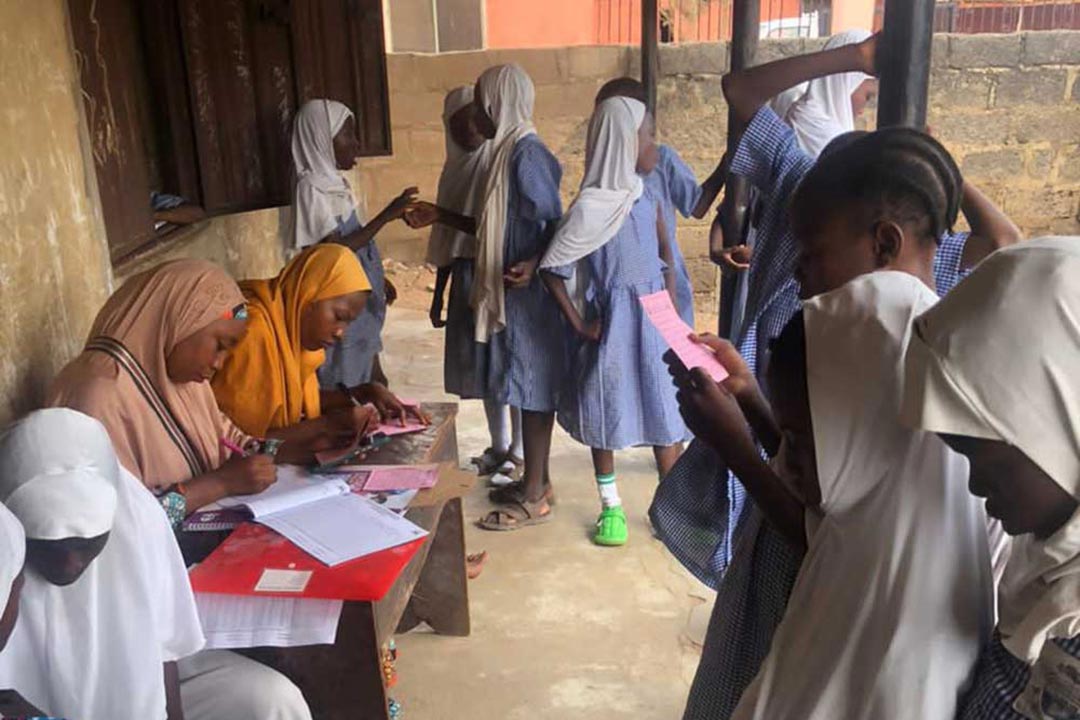
Balkis Muftau, 12, shut her eyes tightly as a tiny needle penetrated her upper left arm, but the shot was over in moments. Muftau dabbed the spot with a piece of cotton wool and made her way back towards fellow pupils at Adeta Primary School who stood in line for the single-dose human papillomavirus (HPV) vaccination.
"We don’t want to die young. We had been expecting the vaccine, and we are very happy to finally get it."
– Balkis Muftau, aged 12
Located uptown in Ilorin, Kwara State, in north-central Nigeria, the school's ambience on the morning of Wednesday, 29 May was a departure from the norm. Teaching was temporarily put on hold as over 200 female pupils between the ages of 9 and 14 gathered on a walkway, where a team of health workers busily administered the vaccine.
"I am fine,' Muftau remarked, excitedly.
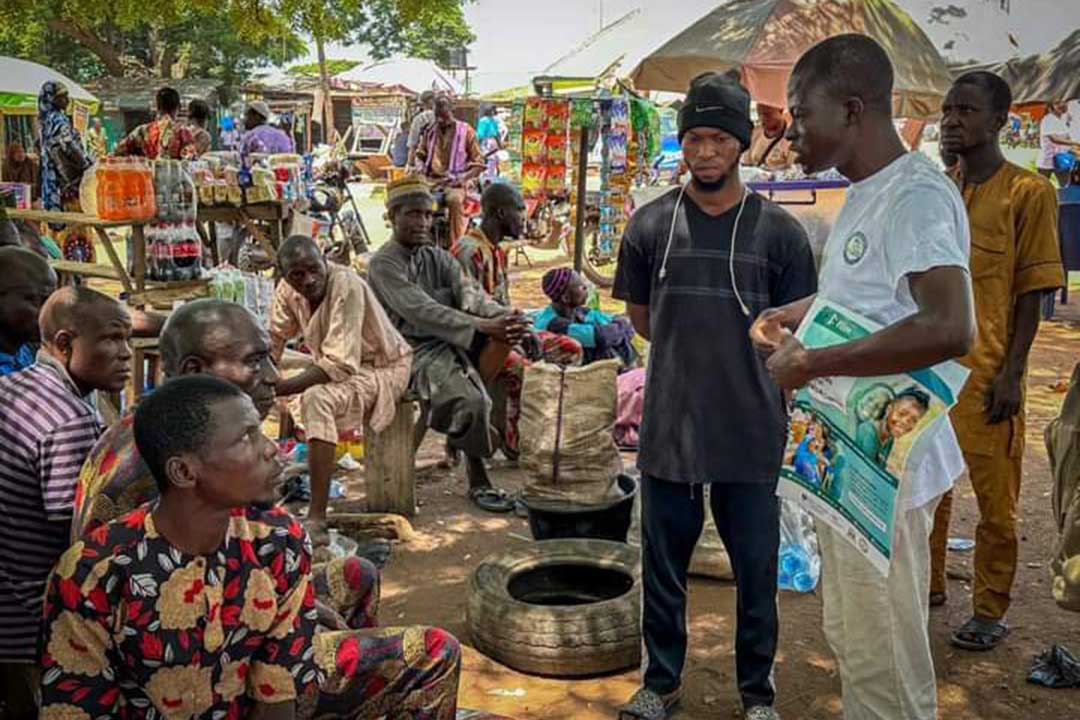
Credit: LEAH Foundation
Protective for life, the HPV vaccine is capable of preventing more than 90% of cases of cervical cancer, the second deadliest cancer among women aged between 15 and 44 in Nigeria. About 13,700 new cases and 7,000 deaths were recorded in the country in 2022 alone.
To stem the tide of HPV, in October 2023 the National Primary Health Care Development Agency launched thefree rollout of 7.7 million doses for girls – a first volley of vaccines in a larger, phased campaign that aims to protect some 16 million girls by 2025 – with support from Gavi, UNICEF, the World Health Organization (WHO), and other partners.
Phase I of the roll-out was carried out in schools and communities across 16 states in Nigeria and the Federal Capital Territory, Abuja, last year. Phase II began in May – and Kwara is one of the states targeted in this second wave.
IN NUMBERS: NIGERIA'S HPV ROLL-OUT
Phase I of the campaign, launched October 2023, saw 5.3 million girls in 15 states plus the Federal Capital Territory (FCT) vaccinated.
Phase II, which kicked off in May 2024, has already seen 7 million girls in 21 states protected – and counting.
With the HPV vaccine entering into routine immunisation schedules in states across the country, Nigeria hopes to immunise some 16 million girls by 2025.
Kwara health leaders aimed to reach more than 80% of its eligible population in an intense five-day drive that ran from 27 May to 31 May.
"We heard on the radio that it is good"
"Some health officials had earlier come to tell us cervical cancer is deadly and encouraged us to take the vaccine to prevent it," Muftau told VaccinesWork. "The school had also invited our parents to a meeting to inform them about the vaccine. We don't want to die young. We had been expecting the vaccine, and we are very happy to finally get it."
Amudalat Alabi, assistant head teacher at the school, said the turnout was impressive, crediting a sustained sensitisation campaign and cooperation from parents.
"The wives of the immediate past and incumbent Kwara governors have been very passionate about the vaccine, campaigning on different media platforms. We also enlighten the parents, and they cooperate with us.
"However, we still have a few parents who insisted they did not want their children to take it. We intend to invite them to another meeting and educate them more about it, perhaps in the presence of health workers. We are hopeful they will have a rethink," she adds.
Not all girls in the eligible age range were to be found in school hallways or classrooms, however, so vaccinators turned up to community outreach posts, too. At Idigba, about two kilometres from the primary school, girls came out in numbers, together with their parents, as the vaccination team arrived around midday.
Aisha Abdullahi's parents were not at home, but the 11-year-old girl, who helps her mother manage a small confectionery shop, gladly approached the health officials to get the shot.
"My mother had already told me to take it [the HPV vaccine] because she heard on the radio that it is good and will prevent [cervical] cancer. Some of my friends whose parents were away have also taken it," she says.
Ready, set…
Adeta Primary School and Idigba were among 30 schools and communities in the Ilorin metropolis that the team led by Mojisola Sulyman, a community health worker, visited during the weeklong outreach. It went well, she reported – and attributed the success of the drive largely to the intensive public awareness campaign that preceded it.
"Government and civil society organisations have been raising awareness about the HPV vaccine on television, radio stations, social media platforms and in communities. We [health workers] had also gone to schools to educate teachers and their pupils on it," she said.
As part of the second phase of the nationwide HPV roll-out, Kwara had the advantage of other states' experiences. "In some states where the first phase took place, many parents were reluctant to allow their children to take the vaccine because they were not properly informed. To avoid a similar scenario, the sensitisation began in November last year and it was really helpful; it made our work easier. More than 5,000 eligible girls were vaccinated by my team during the outreach," she told VaccinesWork.
First Ladies take up the banner
Not only did Kwara's First Lady, Professor Olufolake Abdulrazaw, open the state's launch event, one of her predecessors was also engaged in drumming up enthusiasm for the roll-out.
One of the organisations beating the drum for HPV vaccination in the weeks leading up to the campaign's launch is the LEAH Foundation, a cancer advocacy and children's welfare organisation founded by Dr Omolewa Ahmed, wife of the immediate former governor. Volunteers working with the foundation stepped up their activities in hamlets, markets and schools to inform children and their parents about the HPV vaccine.
Have you read?
The acceptance of the HPV vaccine in Moro Local Government Area – a rural part of Kwara – had been impressive so far, said Dr Ahmed on day two of the state-wide vaccination outreach.
"Many parents were excited to have their eligible daughters get the shot. Many of them have become ambassadors and have preached about it. We walked house to house, shop to shop, and discussed the importance of the HPV vaccine to anyone and everyone. We talked to people in their small groups and markets, making sure everyone got the message. Our vision is a world where no woman has to suffer from cervical cancer," she says.
Community, religious leaders step up
At the grassroots, community and religious leaders have kept the flag flying, sustaining the momentum of door-to-door awareness-raising efforts and dispelling unfounded rumours about the vaccine. Folorunso Akanbi, the youth leader of Idigba community, says he has been in almost constant conversation with youths, and talking to families about the benefits of the vaccine.
"Anything that can protect our children is highly welcome. That is why we support the government to drive the sesntisation. Most [eligible] girls in my community have already received it either in school or at home. My daughter got hers on Thursday [30 May] at her school, and she showed me her vaccination card," Akanbi reveals.
"Many parents were excited to have their eligible daughters get the shot. Many of them have become ambassadors and have preached about it. We walked house to house, shop to shop, and discussed the importance of the HPV vaccine to anyone and everyone. We talked to people in their small groups and markets, making sure everyone got the message. Our vision is a world where no woman has to suffer from cervical cancer."
– Dr Omolewa Ahmed, LEAH Foundation, former First Lady of Kwara state
Hajara Isiaka, a mother of five, was initially hesitant to allow her two daughters, aged 10 and 13, to take the shot, she says, admitting that Akanbi-led youths and other campaigners changed her mind.
"I was afraid the vaccine could harm them, but eventually agreed after I was told it was safe and effective to protect them from having cervical cancer. They have taken it, and they did not complain of any side-effects," she reported.
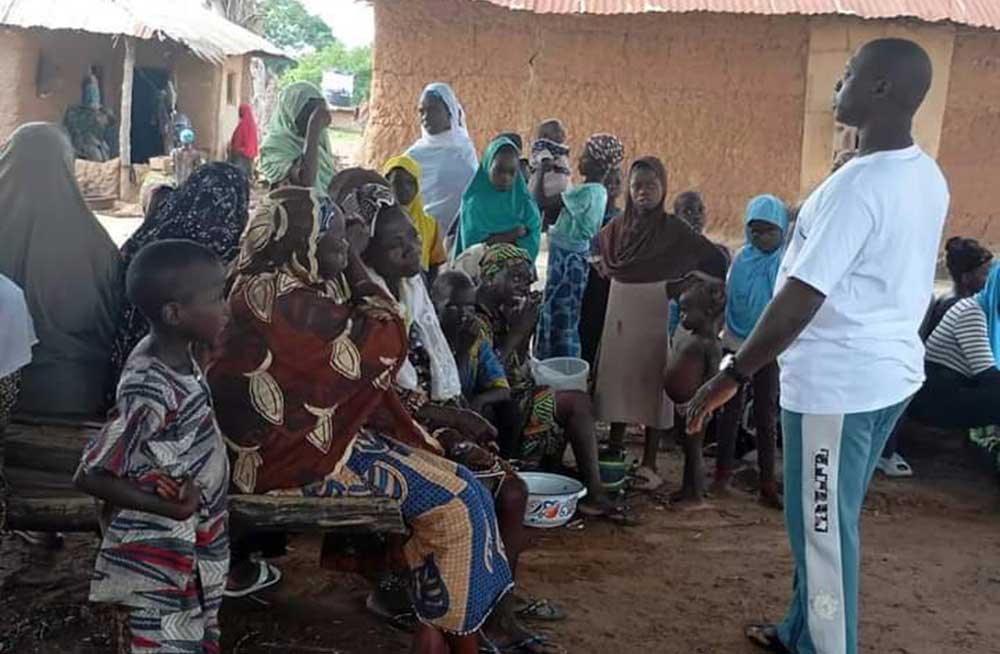
Credit, LEAH Foundation
At an event marking the start of the mass vaccination on 27 May, Dr Haliru Ndanusa, the Emir of Shonga, pledged to continue to use his position as the religious and traditional head in the Edu local government area of Kwara to drive HPV vaccine uptake.
"We will continue to work to dispel all the rumours surrounding the safety of the vaccine," he added.
